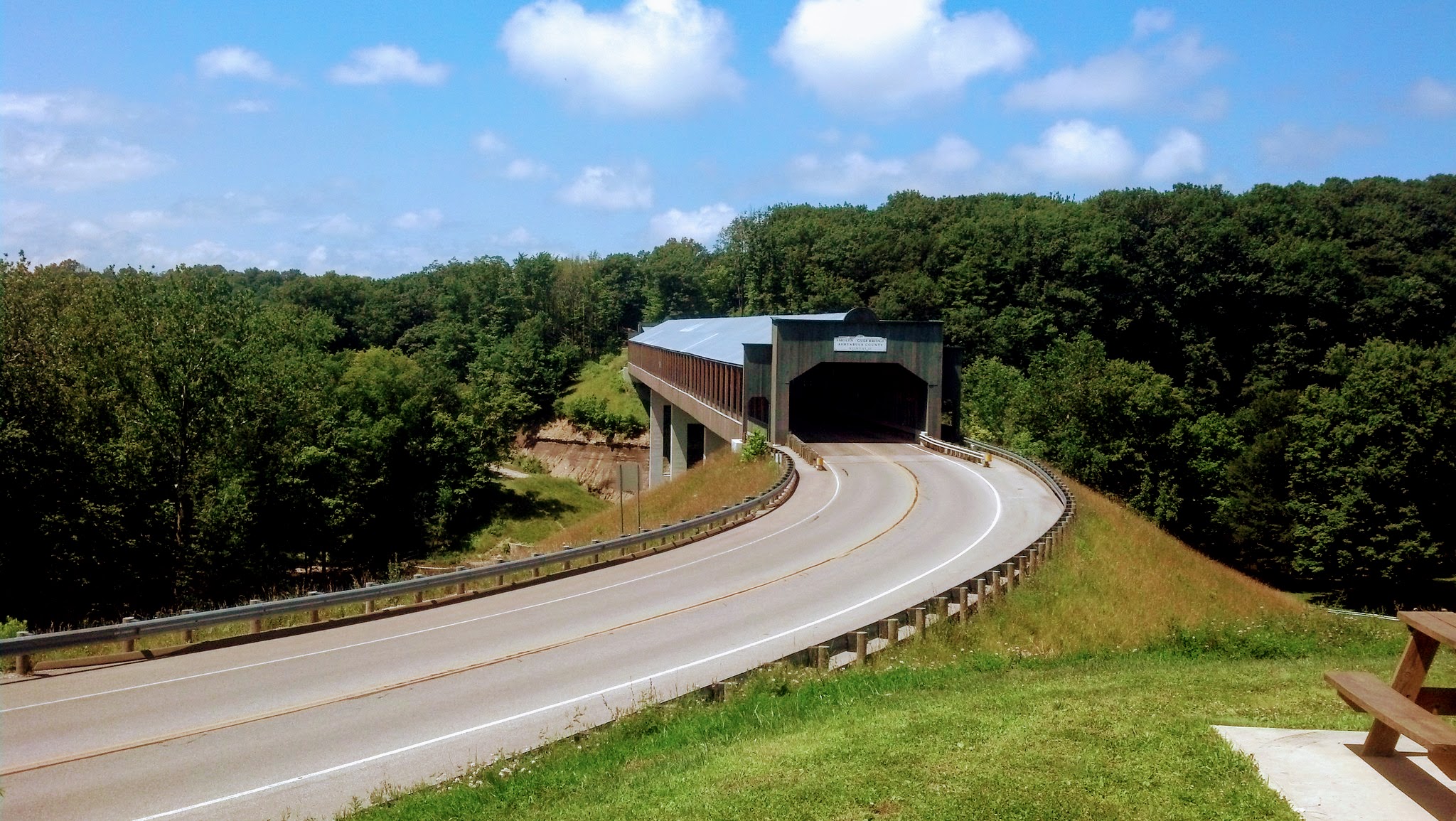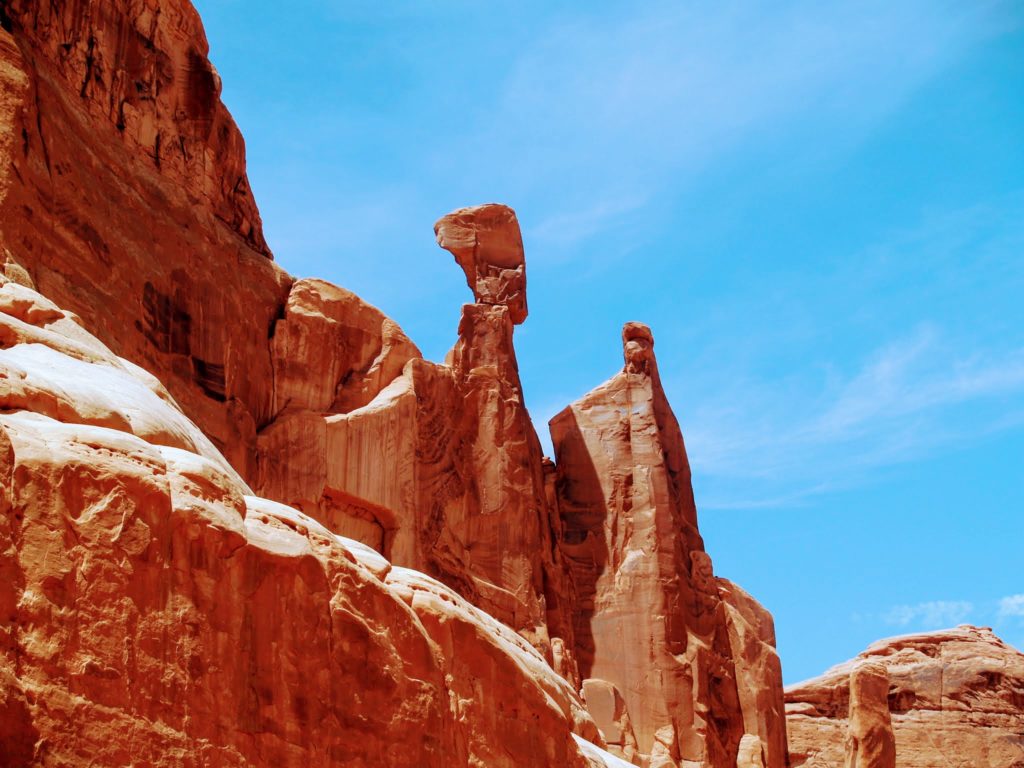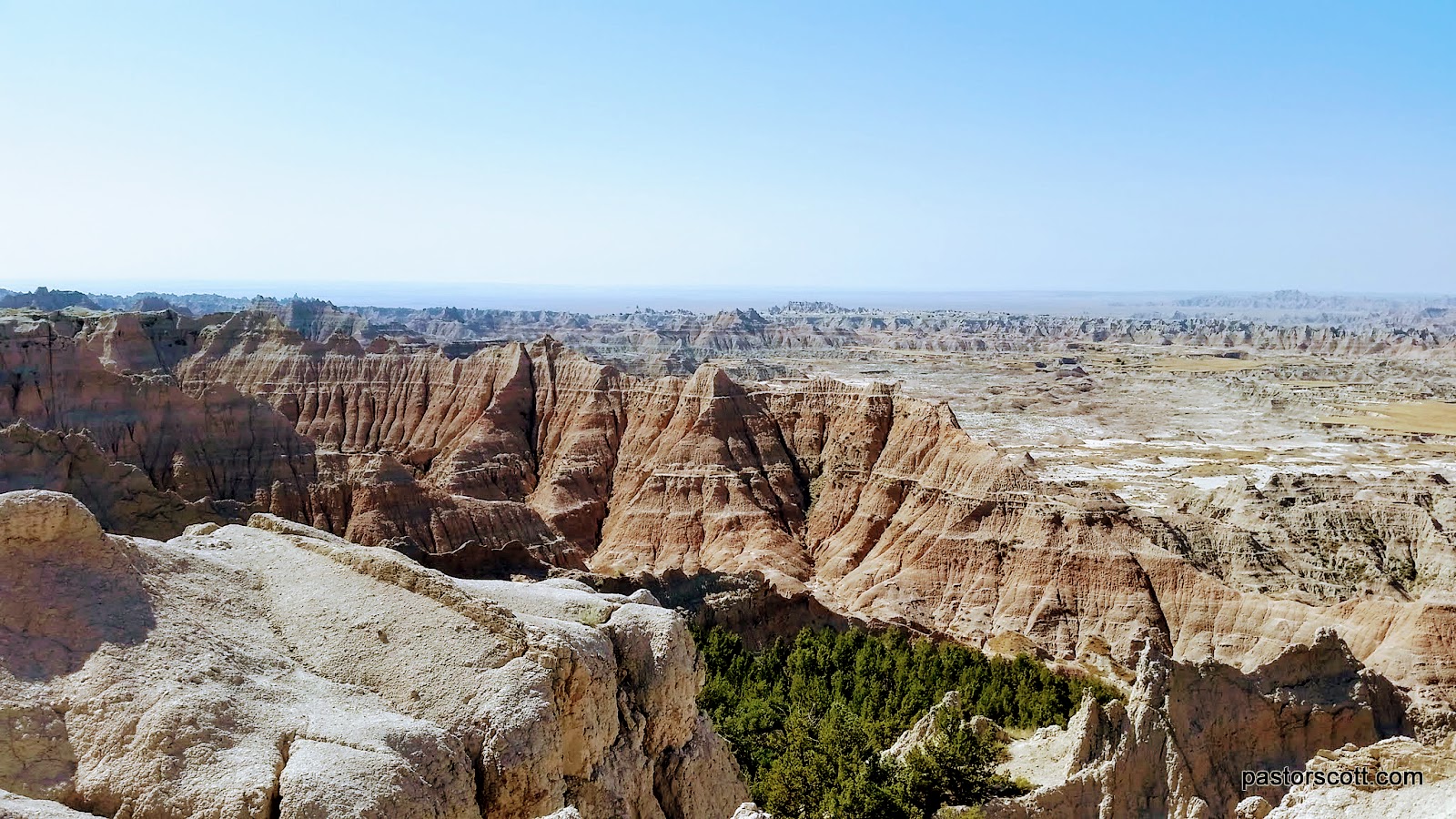Baby talk
Isaiah 28: This is the meaning of the stone: A TRUSTING LIFE WON’T TOPPLE.
The people who hear Isaiah’s sermons think they have everything figured out. As far as they’re concerned they’ve heard it all before. If Isaiah wants their attention he has to come up with a new approach, something unique and interesting. Otherwise, in their opinion, they’re too sophisticated for his old message. The prophet says, “You aren’t as advanced as you think you are. In fact, God’s going to strip everything back to the bare basics and his message to you is going to be ‘baby talk.'” Isaiah describes the Lord’s new approach in dealing with these know-it-all people as laying a new cornerstone. That stone, he says, will be inscribed with God’s communication to his people: “A trusting life won’t topple.” That message is, at the same time, both simple and profound. It’s simple because anyone can understand it. It’s profound because it’s the secret to maintaining life in the Lord. God isn’t looking for clever people who come up with all kinds of gimmicks and cute slogans. Instead, he’s looking for people who’ll simply trust him. As I read of the Lord’s future plans for the people of Isaiah’s day, I see that he wants me, as one of his people, to hold steady, always trusting in him.
Take Away: The Lord’s looking for people who’ll simply trust him.
Tag: security
Devotional on Ezekiel
Gog and Magog
Ezekiel 39: I’ll use them to demonstrate my holiness with all the nations watching.
The prophet has encouraging words for the broken people of God. The Lord will breathe life back into their dry bones and the nation will be brought back from the destruction that has come. It’s at this point that Ezekiel turns his attention to the “distant future” and the mysterious “Gog and Magog.” From what I can tell, the more down to earth commentators think that Ezekiel’s original audience knew just who he was talking about and that this prophecy is much like those given against Egypt, Tyre, Sidon, and other nations in the region. Taken at face value, then, Ezekiel is prophesying that in a more distant future, after the restoration of Israel, another regional power will come against God’s people. When that happens, the Lord will move to defend them and will destroy the invaders. However, there are two things that get the attention of many. First, this nation from “the north” isn’t clearly identified in history. Second, “Magog” is mentioned in a similarly vague way in Genesis and then Gog and Magog make a major appearance in the book of Revelation as part of the wind up of history. If we conclude that the “distant future” Ezekiel’s talking about is still in our future we find ourselves swimming in the deeper waters of prophecy. I hate to disappoint you, but I’m not ready to go there. I think it’s more likely that Ezekiel is talking about a nation well known to him and his listeners and that the distant future isn’t “book of Revelation distant.” I think that when John writes Revelation he’s reminded of Ezekiel’s words: an attack on God’s people by a coalition of enemy forces. He uses that reference to describe the scene of the final battle. To me, the key to the whole passage is God’s promise to defend his people and to “demonstrate his holiness” to the world. That concept plugs into both the Ezekiel and the Revelation prophecies. It also plugs into my life: when everything seems to be against me the Lord knows how to rescue me as one of his people. Rather than getting all mystic about this passage, I’d rather find here yet another promise of God’s faithfulness even in the most difficult of circumstances.
Take Away: Even when it seems everything is falling apart God is still God and God is always faithful to those who trust in him.
Devotional on Joel

The only real security
Joel 3: God is a safe hiding place.
When the prophet describes God as a “safe hiding place” he isn’t talking about hiding from the natural disaster that’s struck the land. He’s moved forward in his sermon and is thinking about how the world as we know it will come to an end. He pictures a great final battle when God’s Judgment will fall over the earth. Joel says the forces of evil will come to do battle against the forces of God and that the Almighty will respond in full force, shaking the earth and sky in one unforgettable blow that will spell the end of all opposition to his Kingdom. Lest his own people fear that day, the Lord promises to, himself, be a “safe hiding place” for all who trust in him. We’re told that the end result of all this will be that “God has moved into Zion for good.” The fact is that natural disasters will come and go as the pages of history are turned. Most of the time, I’m merely a concerned spectator, watching from the sidelines. Some of the time, I can involve myself in some relief effort. Once in a while, maybe only once in a lifetime, I will find myself unhappily at the epicenter of it all. This passage reminds me that an event much greater than any of that is out there on the horizon of history. On that day everything’s going to come crashing down as Good and evil clash in a Creation-shaking battle. There’ll be no storm shelter secure enough and no place remote enough to protect me from it all. My only hope of safety is in God. As I live my life in him, I not only find strength for the unwelcome ordinary trials and tribulations of life, but shelter against this, the biggest storm of all.
Take Away: My only hope of safety is in the Lord.
Devotional on Malachi

On the brink and not realizing it
Malachi 3: It doesn’t pay to serve God. What do we ever get out of it?
The message of Malachi is for people who are living in the broad middle, somewhere between the best and the worst days of life. They’re comfortable and secure, just going about the business of living. However, there’s hidden danger in that. When I’m living in the middle I’m tempted to take things for granted. Blessings that would have thrilled those who went before me are lost to me. God feels distant and that makes it easier for me to take spiritual shortcuts which make him feel even more distant. If I’m not careful, one day I look around and God is nowhere to be found. I think to myself, “Do I really need the hassle of religion? I don’t think it’s worth the effort I put into it. People who live as non-religious individualists seem to get along okay. Maybe that’s for me.” That’s where Malachi’s congregation is. Without a sense of desperation for God they’ve drifted away from him. Now, they’re on the verge of stepping off the cliff into the canyon of unbelief. The Lord responds that he’s well aware of what’s going on and that the day’s coming when they’ll be abruptly moved from the broad middle to the hard side of life. With all else ripped from their grasp, their faith will be all there is left to hold on to. There’s unseen danger for those of us living in the broad middle of life.
Take Away: We have to pay attention to spiritual things or they slip from our grasp.
Devotional on 2 Samuel
Marching to victory
2 Samuel 8: God gave victory to David wherever he marched.
David is now firmly established as king of Israel. He undertakes the great mission of retaking territory that has been lost and subduing or destroying their enemies. War isn’t pretty and the best I can do here is to simply read the historical account and see it as descriptive of what David is able to do by the power of the Lord. These events are distant from me in time and culture. For David, this is about making Israel safe, secure, and firmly established. The lesson here is not that God will help me inflict pain and death on my enemies, but instead, that God will help me live in victory over those things that would destroy me.
Take Away: By the Lord’s help I can defeat all that would defeat me.
Devotional on 2 Kings

Nothing special, just life
2Kings 15: He was king for fifty-two years in Jerusalem.
The stories of the twin kingdoms are told in parallel but they’re very different stories. Judah is rather stable with kings generally ranked as “good with some failures” while kings of Israel receive failing marks. Because of that, God blesses Judah with consistency of leadership that’s lacking in Israel. In fact, Israel’s throne at this time has the feel of a revolving door. There are numerous assassinations and one fellow, Shallum, only manages to hold the throne for a month. Meanwhile, Azariah and his son Jotham, rule Judah for 68 years. Judah isn’t perfect, but there’s a spiritual, God-connected element that’s missing from Israel and during this period of their histories one place we see it is in the stories of their kings. While intrigue and subterfuge make for the best stories, I think most citizens will say that peace, security, and prosperity make for the best lives. Israel might be more often talked about in the region but Judah’s the better place to call home. Thank God for the blessing of living, more often than not, a life that doesn’t make the headlines.
Take Away: We tend to take common, day to day life for granted; but we shouldn’t.
Devotional on 1 Chronicles

Security guards
1 Chronicles 26: The teams of security guards were from the family of Korah.
I’ve read this passage several times in various versions of the Bible, but since the sons of Korah were called “gatekeepers” it didn’t catch my attention. Now I see them being described as “security guards.” I guess that’s what gatekeepers are supposed to do: they provide security, seeing to it that all who enter are there for legitimate purposes. King David is such a multifaceted person. He’s a singer and songwriter and harp player, a skilled leader, and he’s a warrior who’s won countless battles. In this case, I see him drawing from his “warrior” skills in organizing the Levites. In spite of the peaceful conditions of the day David prepares for possible trouble. Now, it might be that the sons of Korah are basically ushers who tell people where the corral is for their soon to be sacrificed lamb but I’m guessing that David also wants them there “just in case.” I wonder to what extent, if any, this applies to the Church today. There have been some horror stories in the news, and, obviously, a church full of people is probably viewed as an easy target by some very bad people. I’m not seeing this as some kind of mandate, but there is, at least to some extent, a precedent here for a church to have at least some unofficial security.
Take Away: Leadership involves, in addition to having a vision and sense of direction, the ability to think through the practical concerns of the organization.
Devotional on 2 Chronicles

Jakin and Boaz
2 Chronicles 3: The right pillar he named Jakin (Security) and the left pillar he named Boaz (Stability).
These chapters of 2 Chronicles are devoted to the construction of the Temple. Some of the descriptions may be merely historical. Some things, though, like the perfect cube of the Holy of Holies likely carries meaning beyond the description. In the case of the two huge bronze (or copper) pillars at the doorway of the Temple, we don’t have to guess because we’re given the symbolic meaning. The six foot thick, twenty-seven foot tall pillars represent “Jakin” and “Boaz” – that is, Security and Stability. These are wonderful attributes whether we’re talking about the life of an individual or that of a nation. Every time the people of Israel of that era enter the Temple they’re reminded of the Source of their Security and Stability. We may not have a couple of large shining pillars at the entrance to our churches, but we certainly need to be reminded of the truth they symbolize. If I want to live a spiritually secure and stable life I must be firmly grounded in the Lord. The same benefit is available to a nation that allows the Lord to shape its character.
Take Away: We must build our lives on the Rock and not on the sand if we want to live secure, stabile lives.
Devotional on Nehemiah
Don’t fence me in
Nehemiah 7: The city was large and spacious with only a few people in it and the houses not yet rebuilt.
Security issues aren’t solved once the walls and gates of Jerusalem are rebuilt. The enemies of the returning Jews are still their enemies and the area is still partly untamed. Because of that Nehemiah has to create a national guard to oversee security within the walls of Jerusalem. Seeing the statement that this ancient Jerusalem “was large and spacious with only a few people in it” makes me think of the coming New Jerusalem. Leaving end days theology out of it, we still have a picture of a huge city, the city of God. This heavenly Jerusalem is even more spacious than the city Nehemiah defended. I pray that the population will not be only “a few people” but instead will be, to borrow from John the Revelator, “a vast number, more than anyone can count.”
Take Away: There’s enough room in the plans of the Lord for all of us.
